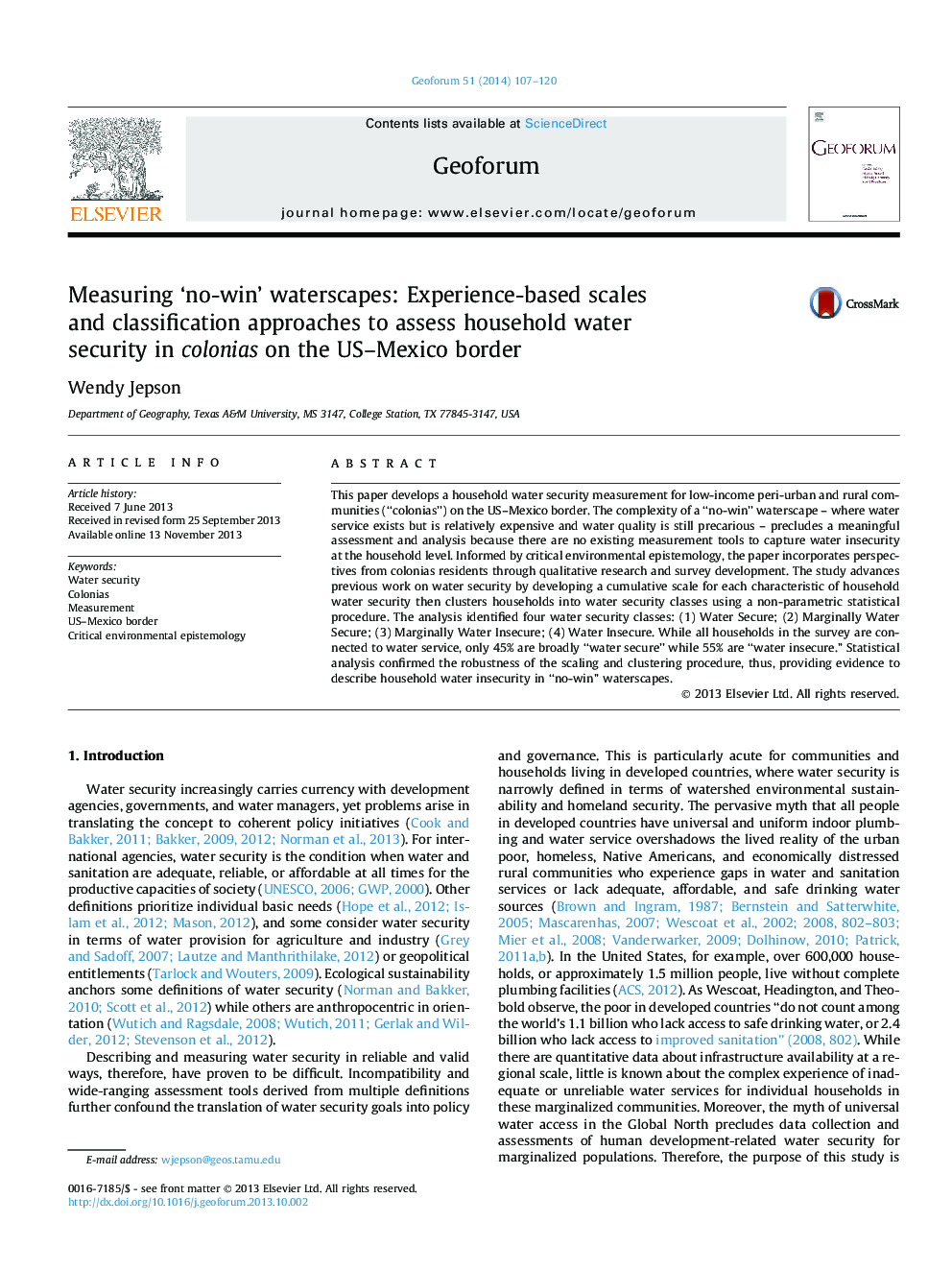| Article ID | Journal | Published Year | Pages | File Type |
|---|---|---|---|---|
| 5073903 | Geoforum | 2014 | 14 Pages |
Abstract
This paper develops a household water security measurement for low-income peri-urban and rural communities (“colonias”) on the US-Mexico border. The complexity of a “no-win” waterscape - where water service exists but is relatively expensive and water quality is still precarious - precludes a meaningful assessment and analysis because there are no existing measurement tools to capture water insecurity at the household level. Informed by critical environmental epistemology, the paper incorporates perspectives from colonias residents through qualitative research and survey development. The study advances previous work on water security by developing a cumulative scale for each characteristic of household water security then clusters households into water security classes using a non-parametric statistical procedure. The analysis identified four water security classes: (1) Water Secure; (2) Marginally Water Secure; (3) Marginally Water Insecure; (4) Water Insecure. While all households in the survey are connected to water service, only 45% are broadly “water secure” while 55% are “water insecure.” Statistical analysis confirmed the robustness of the scaling and clustering procedure, thus, providing evidence to describe household water insecurity in “no-win” waterscapes.
Related Topics
Social Sciences and Humanities
Economics, Econometrics and Finance
Economics and Econometrics
Authors
Wendy Jepson,
